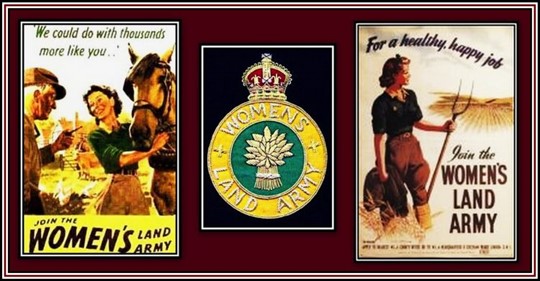TALES OF MY MOTHER
-oOo-
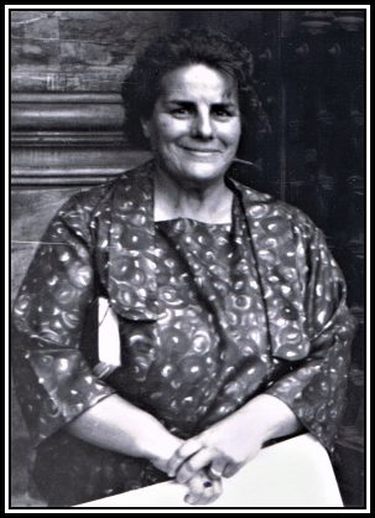 My Mother – a great woman who was never given the opportunity to …….
My Mother – a great woman who was never given the opportunity to …….
-oOo-
TALE X:
WOMEN AT WAR
-oOo-

The Memorial stands close to The Cenotaph on Whitehall
and was unveiled on 9th July 2005 by Her Majesty the Queen
-oOo-
Prior to 1939, Britain was seen as a safe haven for people escaping the tyranny that was then engulfing much of Europe. Displaced people began arriving in London and other British cities from a number of European countries and told stories of the horrors that they and their families had seen and endured. Once France fell and the Nazis turned their attention to Britain, people began arriving from the Channel Islands, which later became the only parts of Britain to be occupied.
Between 1938 and 1939, a number of Jewish children arrived in London at Liverpool Street Station. My mother was among those welcoming them and helped to direct them to where they needed to go. My mother said that this made for a very sad scene, as the children being unable to speak English were obviously frightened and feeling lost and alone. Most had never been apart from their parents before and had no idea what life without them was going to be like. My mother said that this was an extremely tearful experience. On a recent trip to London, I noticed that there is now a monument at the station to mark the arrival of these poor children. It is unfortunately that my mother did live to see this installed.
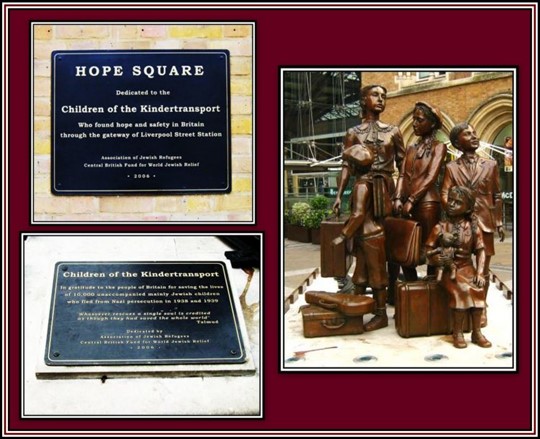
Memorial to Children of the Kindertransport – 1938-1939 at Liverpool Street Station
http://www.youtube.com/watch?v=6_nFuJAF5F0
http://www.scoop.it/t/the-czech-kindertransport
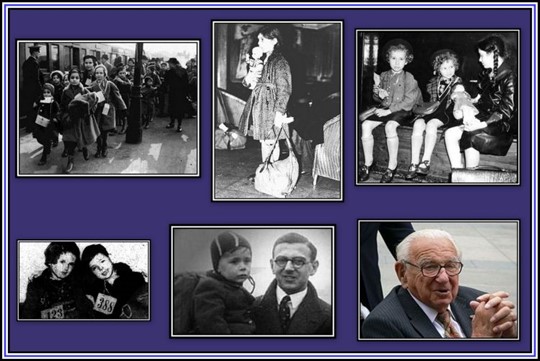 Czech Kindertransport organised by Sir. Nicholas Winton, shown here in 1939 and in 2009.
Czech Kindertransport organised by Sir. Nicholas Winton, shown here in 1939 and in 2009.
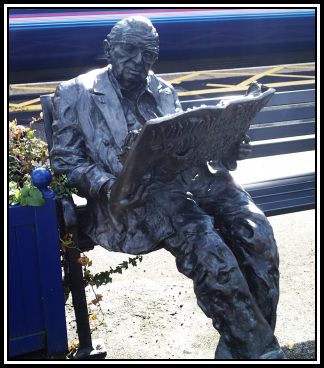
Sir Nicholas died in 2015 and a statue of him, sat at a public bench, was erected at Maidenhead Station, where he took the train to London each morning for many years.
-oOo-
Once Britain was at war, any preparation that had been started on both the military and home fronts were revved up and these preparations brought great changes to the country. Men began to be mobilized into service in one of the military branches and were quickly trained to combat the oncoming hostilities. With more and more men entering military service, a marked strain was felt in the work force, which was now becoming more and more involved in the war effort. To fill the need created by Conscription, women were called into service. In addition, as an attempt to help non-military personal avoid the oncoming hostilities, an evacuation policy was adopted by the government.
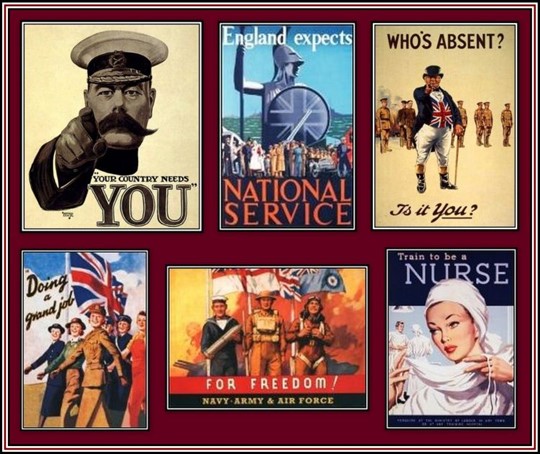
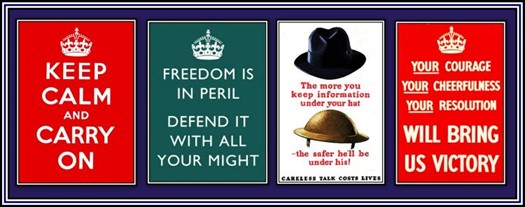
-oOo-
Operation Pied Piper, as the evacuation was called, began on the first of September 1939 and involved the movement of some three and a half million people. Young children along with mothers with babies and various other civilians were evacuated from London to safer areas in the country. The Operation served to remove people out of harm’s way from cities and targets such as docks and factories where things important to the war effort were made. Children were seen off at the station by their families and my mother was there at Liverpool Street Station to help them onto the trains. She said that it was heart breaking to see the children, dressed in their Sunday clothes and clutching small cardboard attaché cases, saying goodbye to their families. She said that by the time the trains left the station, everyone, including herself, was crying uncontrollably. Evacuation later occurred from some of the coastal areas of England once an invasion by sea was thought imminent.
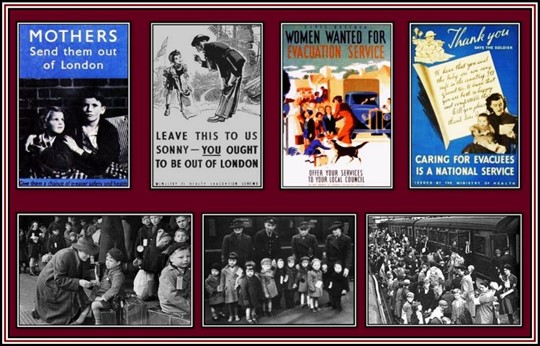
-oOo-
In 1939, London was still one of Britain’s major ports. The London Docks were close to the East End and were filled with merchant ships from all over the world. Raw materials and goods necessary for the war effort were unloaded at the docks and sent to warehouses and places of business both in the city and eventually to factories all over the country. As a result of their importance, the docks were targets for attack. Similarly, as a result of its proximity to the docks, so was the East End.
Once war broke out, women began to bridge the gap left by men in the work force. Women went to work in factories and also on the land while some joined the military. By late 1940 my mother was now married but had no children. As a result of her status, she was called up into public service as part of the war effort and sent to work on British Railways. She had been given the choice between working on the railway or in a munitions factory. Just as she received her Call Up Papers, a friend of hers was killed in an explosion in such a factory. As a result, she chose the railway, and since this was prior to the Nationalisation of the British Railway System, she was sent to work with The London and North Eastern Railway (LNER).
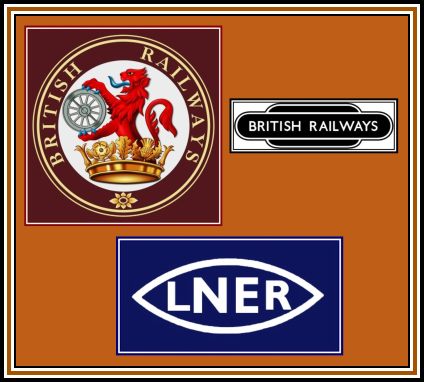
-oOo-
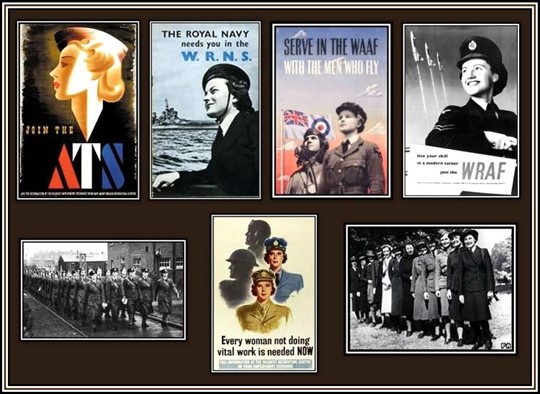 Branches of Military Service
Branches of Military Service
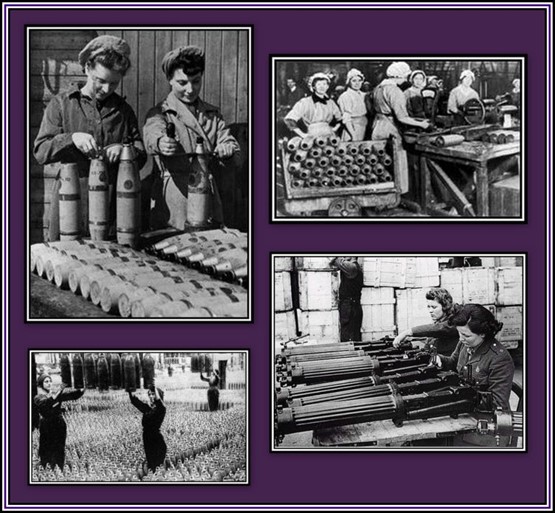 Munitions Work
Munitions Work
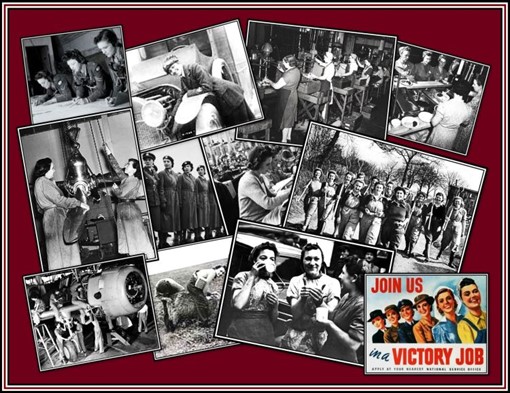 Women at work during the War
Women at work during the War
-oOo-
Like other women at the time, my mother was to take over a job left vacant by a man now in military service. These women had to work hard and were expected to perform the duties of the men they replaced and to do so at the same level of efficiency. Fortunately, my mother was able to do this since she was used to hard work. Her stepfather had sent her to work outside the home, such as it was, before she was eight years old and made her leave school at the age of eleven to work full-time!
My mother was told to report for duty at Aldgate Railway Goods Depot, which was one of the major places where the railway stored its vehicles used for delivery purposes. The Depot was found across the road from Aldgate Underground Station adjacent to the bus terminus on Aldgate High Street. In order to arrive at the depot and report for duty by 5 a.m., she had to get up no later than 3 a.m. She had to walk the two or so miles from her home in Bethnal Green to the depot since the buses did not start operating until after she was had to be at work. In those days, foremen were strict and penalized lateness most severely.
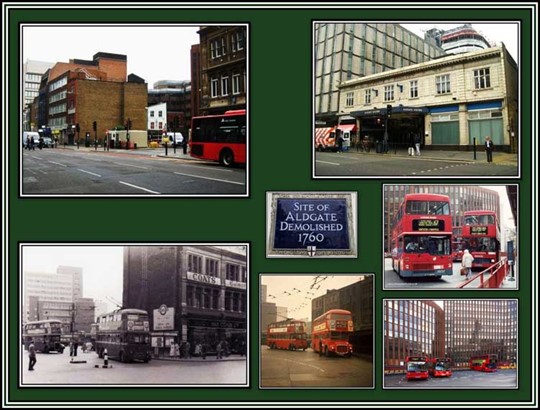 Top Row: left, Site of Aldgate Railway Goods Depot; right, Aldgate Underground Station
Top Row: left, Site of Aldgate Railway Goods Depot; right, Aldgate Underground Station
Bottom Row: left, Aldgate Bus Terminus in 1952; middle, in 1958; right, in 2009
-oOo-

In the autumn of 1940, the British Government decided to retain the time at British Summer Time, which is Greenwich Mean Time plus one hour. This was done so that the workforce could take advantage of the daylight hours. This meant dark mornings during the winter months. From July 1941 until July 1945, clocks were advanced an additional hour during summer months (British Double Summer Time).
-oOo-
My mother was one of three women who reported for duty on that first day. She said that most of the men were openly hostile to their presence since they had little faith that they were going to be an asset. On their first day of work each woman was given to an older man deemed too old and too vital in their job to be called up into military service and who was required to teach them the ropes. My mother was given to a man named Harry James (not the trumpeter) who lived in Dagenham, which at that time was well outside London. Because he lived far away, he had permission to drive to work and was given special coupons each month to allow him to purchase petrol, which was severely rationed. Once he got to know my mother, he would pick her up at the Mile End Gate, which cut down her walk to work each morning.
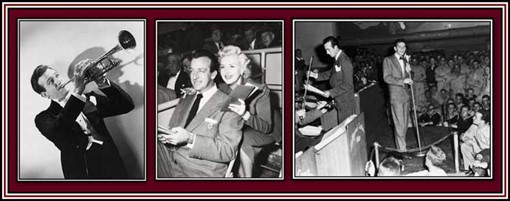 Harry James, the trumpeter, with his wife, Betty Grable and with Frank Sinatra
Harry James, the trumpeter, with his wife, Betty Grable and with Frank Sinatra
-oOo-
The ropes included learning how to pick up huge and heavy sacs filled with a variety of commodities and load them on a large wagon with enormous wooden wheels with steel rims. She was given a large metal hook with a wooden handle to help grab hold of the sacs and drag them into place so that they could be toted on her back. Several times a day they loaded the wagon with such sacs and an assortment of boxes and made deliveries around the City of London and the East End. Many of the streets were of cobblestones at that time, which meant for a loud and somewhat bumpy ride.
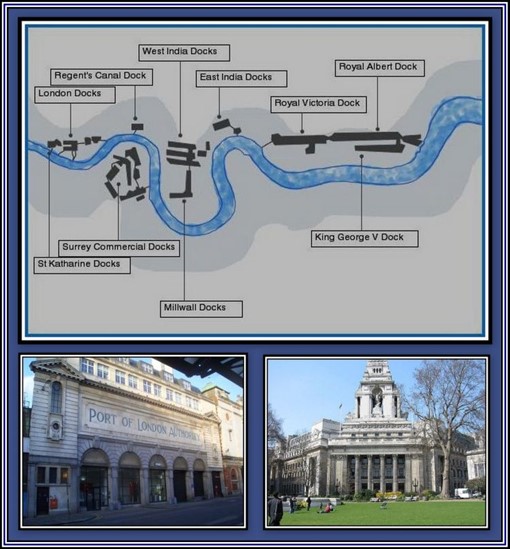 Map of the London Docks, as they once were, and which were administered by
Map of the London Docks, as they once were, and which were administered by
the Port of London Authority (Left) on Charterhouse Street; Right, Trinity House, Tower Hill
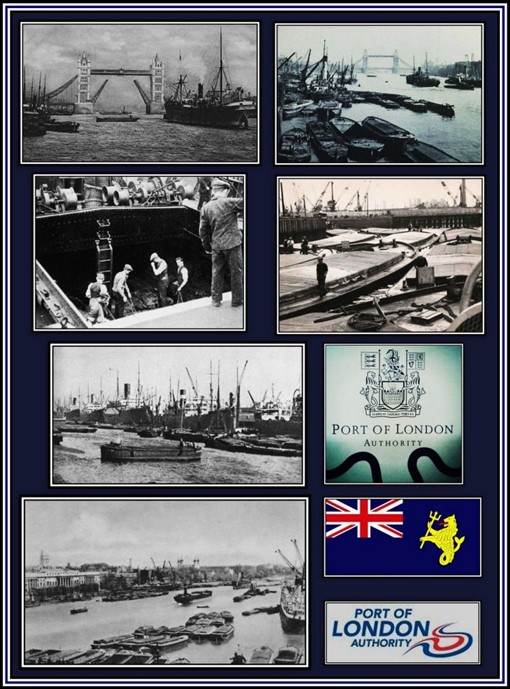 The London Docks & River Thames during World War II
The London Docks & River Thames during World War II
-oOo-
The wagon was pulled by two huge Belgian Horses, which worked as a team. Each horse had been given a name; such names were generally after a radio personality, and my mother’s Harry James’ team was called Gert and Daisy, named after the comedy duo Elsie & Doris Waters.
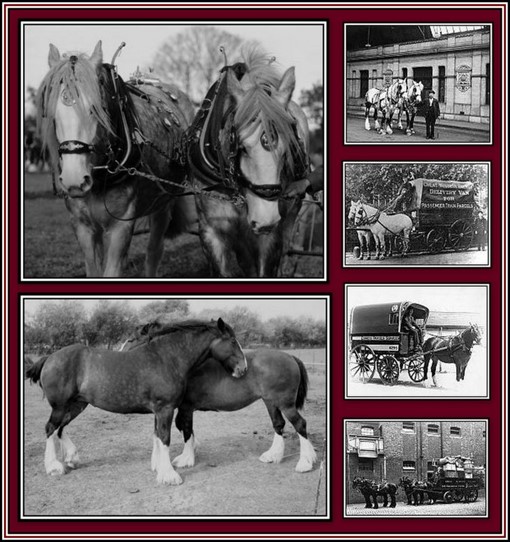
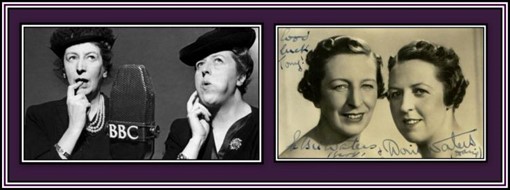 Gert & Daisy alias Elsie & Doris Waters
Gert & Daisy alias Elsie & Doris Waters
The work was hard and the days were long and, as anyone would, it took a while for her to get used to the work. To be honest, she had no choice. The country was at war and everyone was expected to do their bit. Harry James taught her well so that she did not hurt herself. She learned how best to jump down from the wagon and how to carry and unload the sacs. She also learned how to tend to the needs of the horses. She had to fill their nosebags with oats before leaving the depot each time they went out on a delivery and place them around their necks so they could feast while waiting patiently for the unloading to be completed.
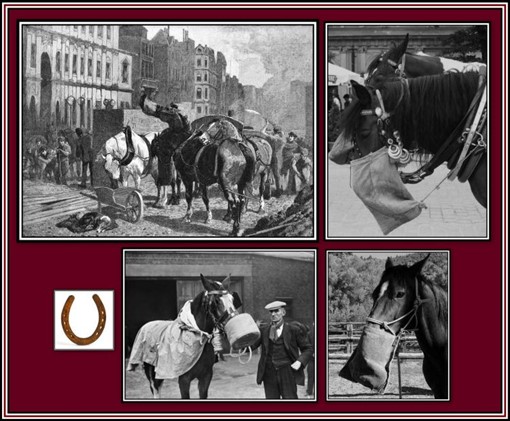
-oOo-
My mother had never really had a childhood. She had to take care of her half-siblings once they were born and also to go out to work and earn money from cleaning homes. She never had a pet, or a doll for that matter, and only knew animals from the pictures she saw at the Bethnal Green Museum, later known as the Museum of Childhood, and now known as Young V&A. In those days, horses pulled heavy carts and most dogs were creatures that roamed the street, seemingly not owned by anyone. As a child, my mother had a natural fear of both horses and dogs.
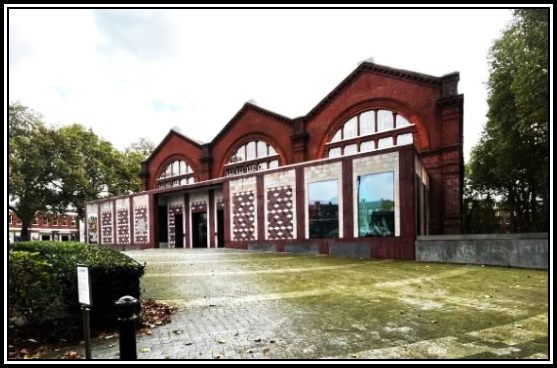 Entrance to the Museum
Entrance to the Museum
-oOo-
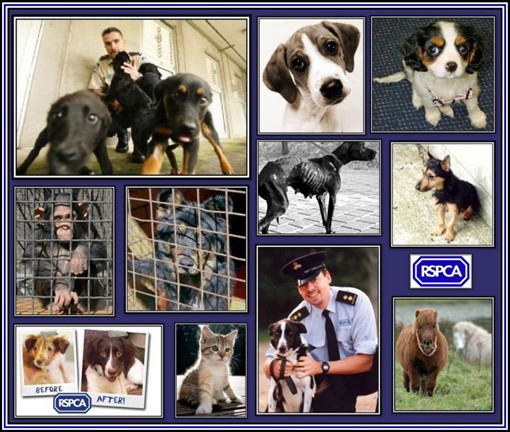
At that time people of the East End often had insufficient money to feed themselves properly and so the keeping of dogs and cats as pets was not common. Uncared for dogs wandered the streets and lived by their wits, feeding where they could. Some could be dangerous. Many dogs with owners were working animals with many being used to guard property. Dogs and cats were not regularly neutered, and litters were constantly being produced with no hope of finding homes for the offspring. Sadly, although the Royal Society for the Prevention of Cruelty to Animals (R.S.P.C.A.) had been formed in 1824 and obtained its royal approval in 1840 from Queen Victoria, it was unable to help all dogs and cats at that time.
One of my mother’s childhood friends was severely mauled by a stray dog and was markedly scared from it. This had a marked effect on my mother and caused her to be fearful of the dogs she saw wandering the streets. Unfortunately she retained a fear of any dog she saw seemingly without an owner. I remember when I was a child and out with my mother, it was not uncommon for us to cross the road in order to avoid such an animal. I remember on one occasion crossing the road with her three times to avoid a particular dog, as it kept crossing with us. We only escaped the dog once when went into a store and waited for it to lose interest in us.
Horses were working animals during my mother’s childhood and, to some extent, during my own early childhood. Horses were seen pulling milk wagons and many delivery vehicles including buses during her early years. Most were docile creatures that caused passers-by no difficulties. Occasionally a horse would take off when spooked by something and gallop off, dragging its cart and spilling the contents across the street. The horses that pulled the heaviest carts belonged to the breweries. These horses were perhaps the largest of all and although impressive to see were perhaps quite formidable to a young child terrorized by a drunken stepfather.
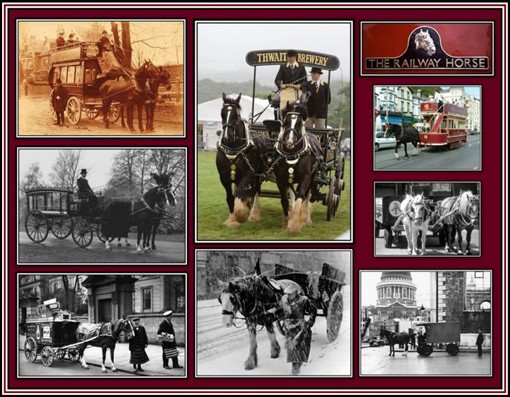
My mother said that she was fearful of Gert & Daisy when Harry James first introduced her to them. Evidently, he was fond of his team and treated them with both kindness and respect and brought them apples from his garden. To help them accept my mother, he allowed her to give them each an apple after completing their first day’s work. My mother said that she was terrified when she extended her hand out to them and felt the warm, wet air from their nostrils and the roughness of their tongues as they gulped at the fruit. Fortunately, she quickly realized that the horses were friendly hard-working animals, and slowly and steadily, they accepted her and soon she was petting them and tending to their needs without fear.
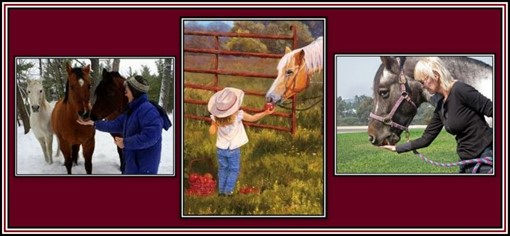
-oOo-
My mother worked with Harry James for a year or so. He drove the team at first, but after a while he started to teach her how to handle them. I was amazed to hear how she was able to do this. They sat on a bench at the front of the cart, which appeared high in the air to me. When she and I walked around the City of London, she often pointed out places where she had made deliveries. I was surprised that she was able to manipulate the team out of the depot and take them along the Minories towards the Tower of London. At some point, she manoeuvred the team into and along narrow and windy streets to a particular warehouse. My mother said that she enjoyed driving the team and was soon able to move them with ease, which also included making them back up. This was impressive and must have been a rare sight to see.
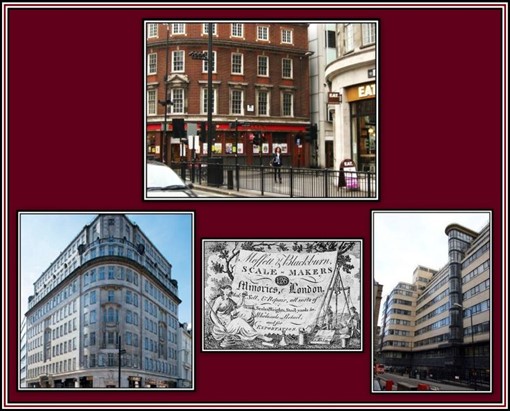 Top: Entrance to Minories at Aldgate
Top: Entrance to Minories at Aldgate
Bottom: left & right, office buildings; middle, company advertisement
Working on the railways and doing delivery work was dangerous. Naturally the London Docks were an important and habitual target of the Luftwaffe during the war years. Whenever there was an air raid and she was making a delivery, she could not seek shelter, but had to protect the horses. This involved covering the head of each horse with sacking and following the tethering of the team to a lamppost and remaining with them until the raid was over.
–oOo-
Later, once my mother was allowed to make deliveries on her own, she was caught in an air raid while crossing London Bridge. Just as she was covering the head of one of the horses it reared up when several bombs exploded close by. The horse came crashing down and stepped on her left foot. Although she was wearing heavy boots with a reinforced toe cap, the hoof nonetheless caused her much pain and injured her left great toe, smashing the nail. Being stoic, my mother remained with the team and did not seek help or inspect the damage to her foot until after her shift was completed. She said that even though she was in pain, she did not go to the hospital, choosing rather to nurse the wound herself. My mother walked with a slight limp until she died at 87 years of age. Incidentally, she was eight months pregnant with me at the time of this encounter!

London Bridge
-oOo-
In addition to her job with British Railways, once she came home, she had to take her turn fire watching at night. This involved walking a set route to ensure that the blackout was maintained and to alert the Fire Brigade whenever fire broke out following an air raid. My mother lived in Bethnal Green, which was often bombed during the air raids on the docks. As a result, there were numerous fires in the area.
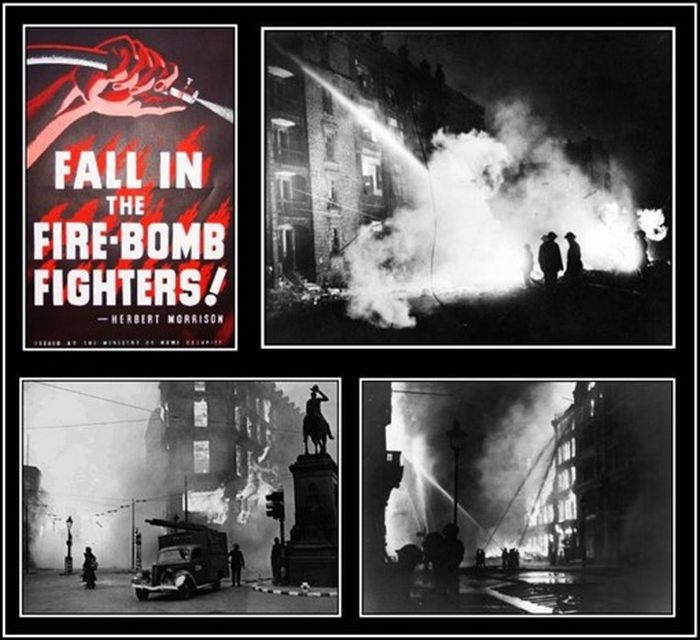 Fires Over London
Fires Over London
-oOo-
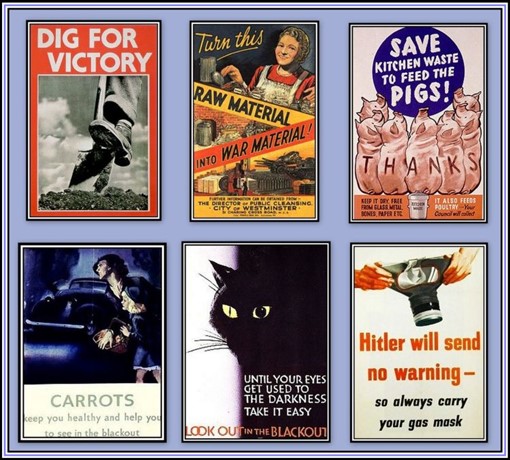
-oOo-
My mother’s days were long and once I was born, her days became even longer and even more stressful. She was given three weeks maternity leave and then required to return to work. The authorities refused to evacuate her and me from London since she was now considered essential to the war effort. My mother was required to place me in a day nursery that had been opened for the babies of working women which was just behind Museum Gardens in Victoria Park Square.
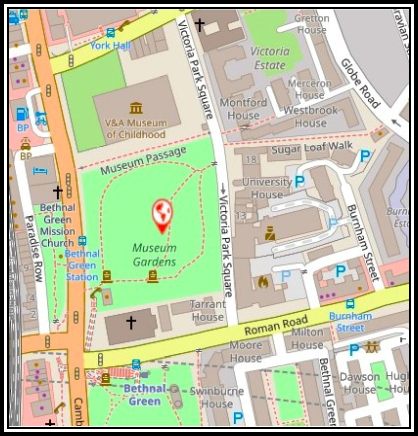
My mother had to take me and all the things that I might need for the day to the nursery early each morning before going to work. Apparently, just like day care today, I caught an endless number of colds and seemed to be constantly ill.
-oOo-

Eventually I contracted Pneumonia and Whooping Cough on two occasions and was taken to Homerton Hospital on each occasion. I was given The Last Rites each time that I was admitted and my father was flown back from the front, as it was believed that I was about to die.

-oOo-
My mother told me, in true dramatic fashion, that the very second that my father walked into the ward, I smiled at him and began to get well. What was perhaps more likely was that I had begun to respond to the tiny dose of Penicillin recently given to me.
 Penicillin
Penicillin
-oOo-
Although the drug Penicillin, was still experimental at the time, it was being tested with much enthusiasm by the Americans. The allies were losing more troops from infection leading to sepsis and death than from combat. This caused the reinvestigation of the work of Alexander Fleming (1881-1955) who was the first to appreciate the drug’s therapeutic nature. When first discovered, people in authority were uninterested and showed little interest in its further development.
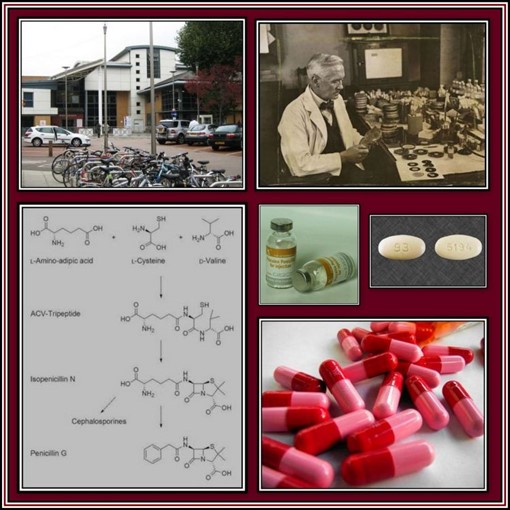 Top Row: left, Homerton Hospital; right, Sir Alexander Fleming, discoverer of Penicillin
Top Row: left, Homerton Hospital; right, Sir Alexander Fleming, discoverer of Penicillin
Bottom Row: left, synthesis of Penicillin; middle & right: forms of Penicillin
-oOo-
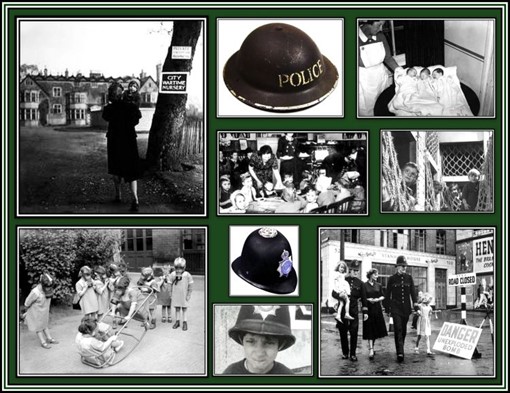
Apparently, I was dropped off at the nursery at 6 a.m. each morning and retrieved after 7 p.m. Since the Nursery closed at 5 p.m., the nursery workers took me at the local Police Station where I waited for my mother to collect me most nights. Once I got a little older, the police officers began to entertain and play with me. My mother said that it was not uncommon for her to find me with a police constable’s helmet being held on my head, which amused my guardians greatly. However, what the coppers really liked to do was to hand me a newspaper, which I was said to hold and look at, thereby giving them the impression that I was reading it. This would send the Boys in Blue into fits of laughter, causing their sergeant to come and find out what all the noise was about. Seemingly he would see what was so amusing and join in the fun. My mother said that they also enjoyed giving me chocolate, which was rationed during the war years. Apparently, they liked to watch me eat it although most of it ended up around my mouth and over my face. It is nice to know that I kept the Bethnal Green Police much amused during the latter part of the war.
-oOo-
Whenever there was an air raid at night, which was often, my mother had to get up from her bed and grab me and the things that she had packed for me and make her way to the air raid shelter. The enemy preferred to bomb at night and especially on nights when there was no moon and when the water level of the River Thames was low. Once the Nazis developed the V-1 and V-2 Bombs (Vergeltungswaffen) , which required no pilot, bombing occurred at any hour of the day. These bombs, commonly called Doodle Bugs, were especially demoralizing to the people of the East End. They could be heard overhead as they headed in your direction. Then quite suddenly, their sound would disappear, which signaled that the bomb was heading to its point of contact. Apparently, people waited as if frozen to the spot as they listened for impact to be made. Sadly, there was nothing to inform them where it would land
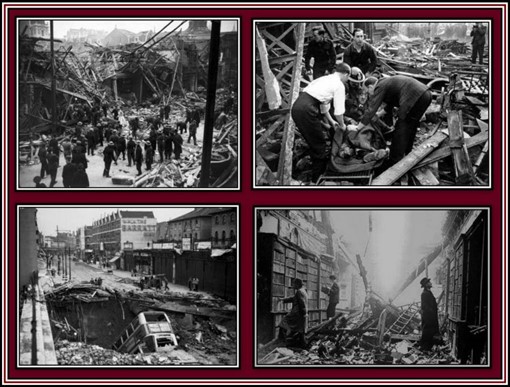
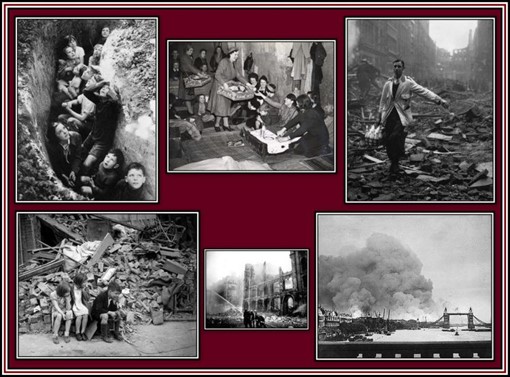 Scenes of The Blitz
Scenes of The Blitz
According to my mother, I hated the shelter. I screamed and screamed during the raid, which did not sit well with the others present who were trying to get some rest since they had to be at work early the next day.
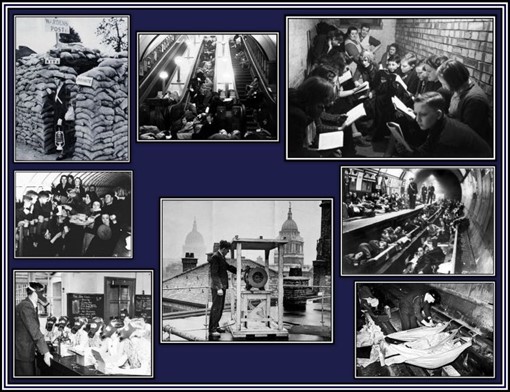 Sheltering
Sheltering
In order to lessen my fear, my mother decided not to go to the official shelter, but rather to seek refuse in the cupboard under the stairs of the house where we lived. It seemed that I much preferred this. We were lucky that no bomb landed on the house and buried us alive.
Air Raid Siren followed by the All Clear
-oOo-
Besides working and taking care of me, my mother had to shop for food. Often this meant spending time in long lines whenever things appeared in shops. She also used to visit her mother to see that she was O.K. Sadly, her mother was never grateful for her visit and never showed any interest in me. Her mother was never available during my mother’s pregnancy and did not come to visit once I was born. I believe that by the time my grandmother actually saw me, I was already one month old.
My mother was supposed to give birth to me at a hospital in Hertfordshire, however on the way to the station she realized that she would not arrive at the hospital in time for my birth. Rather than have her baby on the train, she decided to return home. Once home, she sent for the local Midwife. My mother had great faith in this old lady and chose to have her deliver me rather than go to the local hospital.
The Midwife came quickly, and I was delivered not too long afterwards. It turned out that I was the midwife’s final delivery before she retired, and it also turned out that she was also the woman who had delivered my mother.
As I said, my early years were complicated with illness. This added to the stress suffered by my mother who was expected to report for duty unless my condition became serious. When this happened, she said that Harry James often told her to slip off to the hospital and he would complete their deliveries without her. He was also kind to my mother in other ways. He kept a few hens at the bottom of his garden and also maintained a vegetable patch. Occasionally he brought her a few eggs and some vegetables, for which she was very grateful. His wife also made some clothes for me, which is something that my grandmother never did.
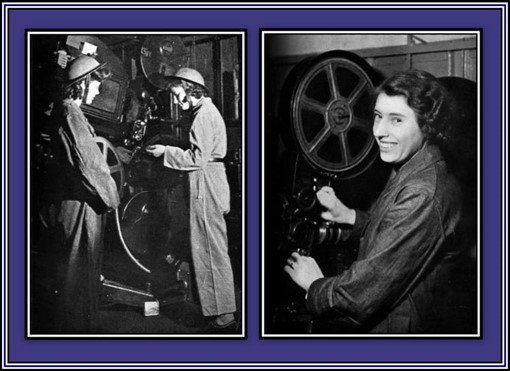 Left, two projectionettes (as they were called at the Granada Theatre Harrow)
Left, two projectionettes (as they were called at the Granada Theatre Harrow)
Right, Flo Grinswood at the Kinema West Ham
I am grateful to Mr. Kevin Wheelan for providing these photographs
-oOo-
Life continued in this manner until the war came to end in 1945. People were overjoyed when the conflict finally came to an end. My mother said that it took some time to get used to being able to sleep without being woken up by the sounds of the siren signaling the oncoming air raid. Although the war had ended, foodstuffs and just about everything else continued to be rationed and daily life remained difficult. Still, as my mother said, at least you did not have to worry about bombs being dropped on you or on your baby that you had to leave in a nursery.
 Click on the collage to hear Winston Churchill & Land of Hope and Glory
Click on the collage to hear Winston Churchill & Land of Hope and Glory
My mother continued to work on the railway until many of the demobbed men returned from service to reclaim their jobs. My mother said that she was sad to leave, as she had grown extremely fond of the horses and the job. Now all we had to do now was to wait for my father to return from Germany.
CLICK HERE to read THE MIRACLE IN HOMERTON
an additional story of the my mother during the Second World War
Many
-oOo-
-oooOOOOooo-
-oooOOOOooo-

